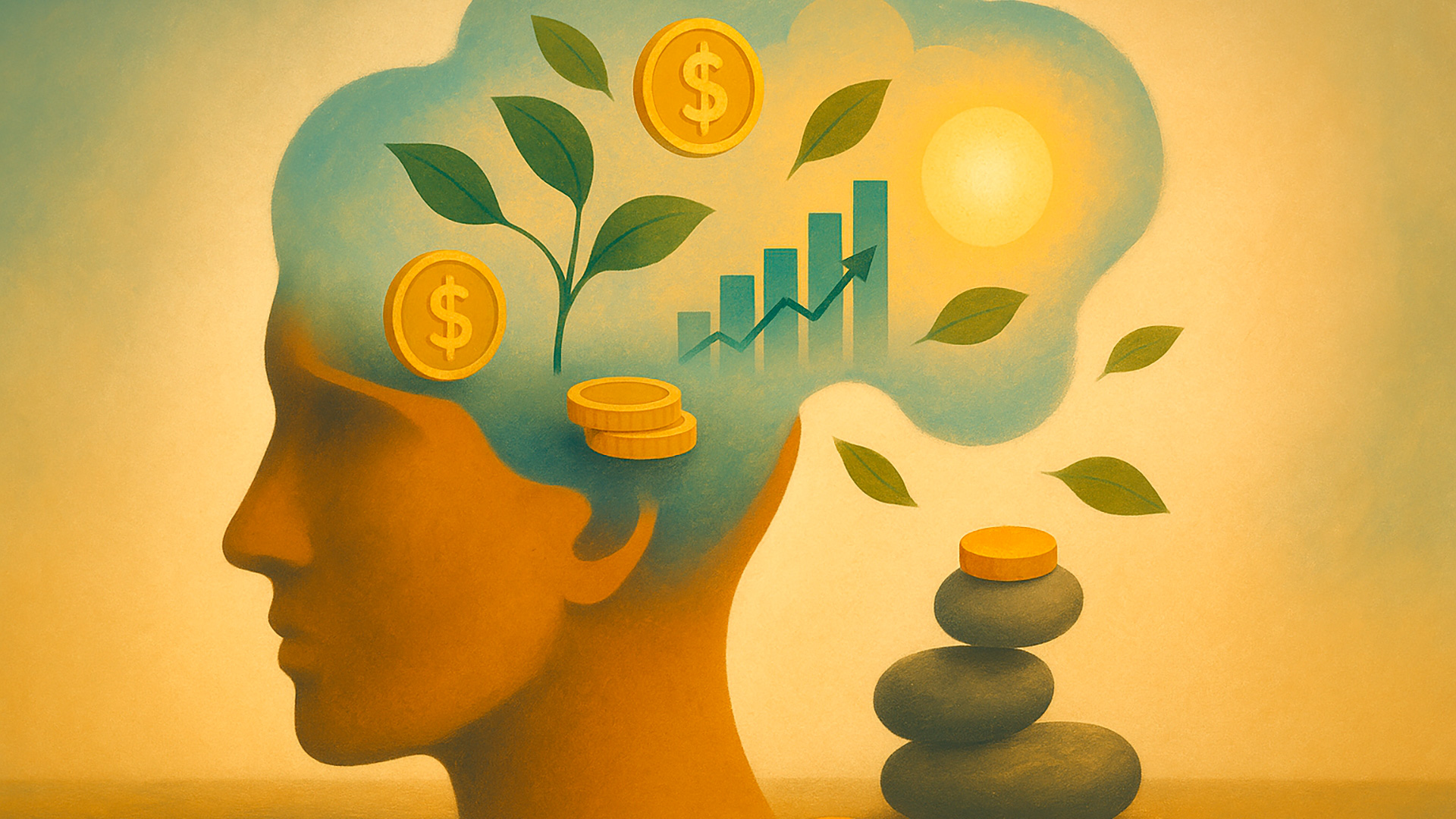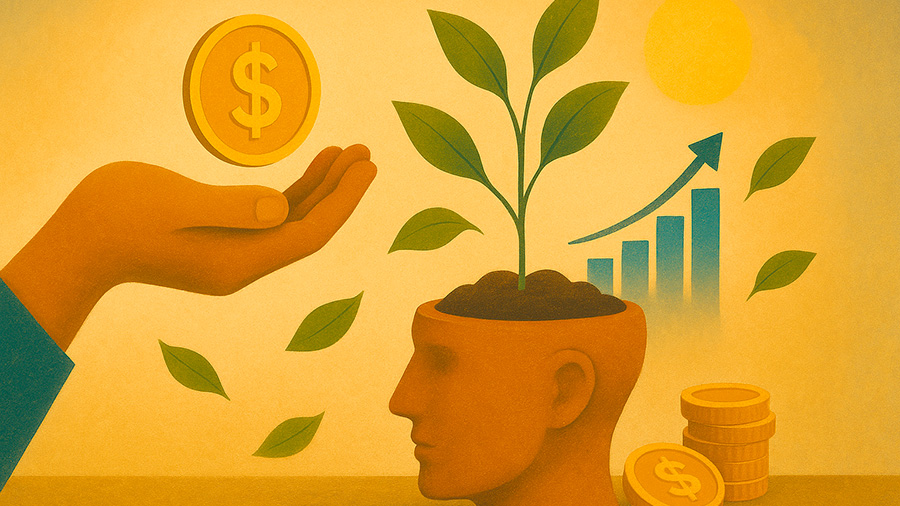
Money is more than numbers in a bank account—it’s deeply connected to how we think, feel, and make decisions. Our relationship with money begins long before our first paycheck and continues to evolve throughout life. For many people, improving their finances isn’t just about earning more; it’s about changing how they think about money. This is where the concept of build financial health truly begins. Understanding the psychology of money helps uncover why we spend impulsively, save inconsistently, or avoid long-term planning—and how to replace these patterns with healthier financial habits.
The Psychology of Money: More Than Math
Financial success often depends less on intelligence and more on behavior. People with modest incomes can accumulate wealth through discipline and smart choices, while high earners sometimes end up in debt due to poor habits. This happens because money decisions are rarely logical—they’re emotional. Our upbringing, experiences, and beliefs all shape how we approach spending, saving, and risk-taking.
To build financial health, you must first understand your financial psychology. Do you spend to feel rewarded? Avoid checking balances because of stress? Save excessively out of fear? Recognizing these behaviors allows you to make conscious, rather than reactive, choices. Financial literacy provides the tools—but psychology provides the motivation and consistency to use them effectively.
Common Money Mindsets and How They Influence Behavior
Each of us has a money mindset that shapes our financial outcomes. Understanding which category you fall into can reveal your strengths and weaknesses in managing money. These patterns often originate from family influences or personal experiences with scarcity, security, or abundance.
| Money Mindset | Behavioral Pattern | Effect on Financial Health |
|---|---|---|
| The Saver | Careful with spending, values security | Stable finances but may miss growth opportunities |
| The Spender | Finds joy in purchasing and rewarding themselves | Can lead to debt and stress without balance |
| The Avoider | Ignores money matters to reduce anxiety | Financial issues worsen over time |
| The Investor | Focuses on long-term growth and planning | Builds wealth effectively with calculated risk |
| The Giver | Enjoys sharing wealth, sometimes excessively | Fulfilling but risky if boundaries are weak |
Identifying your dominant mindset is the first step to build financial health. Once you know your tendencies, you can develop counter-strategies—like budgeting for discretionary spending if you’re a spender or setting specific saving goals if you’re overly cautious.
Emotions and Money: The Invisible Connection
Emotions drive many financial decisions. Stress, excitement, guilt, and fear can all influence how we spend or save. During good times, people often overspend due to optimism bias—the belief that the future will always remain stable. During downturns, fear leads to hoarding cash or selling investments prematurely. These emotional reactions can sabotage long-term stability.
To build financial health, emotional awareness is crucial. Recognize your triggers. Do sales make you feel powerful? Does financial uncertainty make you anxious? Emotional self-awareness transforms your relationship with money from reactive to proactive. Over time, balanced emotions support better decision-making, allowing you to save consistently, invest wisely, and spend with intention rather than impulse.

Healthy Financial Habits That Strengthen Stability
Behavioral psychology teaches that small, consistent habits outperform drastic, short-lived efforts. Just as physical fitness requires regular exercise, financial fitness demands steady routines that strengthen control and confidence. Here are key habits that help build financial health sustainably:
- Track your spending. Awareness is the first step. Use an app or simple spreadsheet to categorize expenses. Seeing where your money goes often triggers natural adjustments.
- Automate your savings. Treat savings like a fixed bill. Automation removes the temptation to spend first and save later.
- Set short-term and long-term goals. Clear goals provide motivation and direction—like paying off debt, saving for a home, or building an emergency fund.
- Reward yourself mindfully. Occasional treats keep motivation high without derailing progress. The key is moderation.
- Review regularly. Financial health is dynamic. Check in monthly to adjust your budget or goals as your circumstances evolve.
Building habits around awareness, automation, and accountability makes progress almost automatic. With consistent practice, you create a financial system that supports—not sabotages—your goals.
The Balance Between Emotional and Practical Choices
| Financial Situation | Emotional Reaction | Healthy Response |
|---|---|---|
| Unexpected expense | Panic or denial | Use emergency fund or adjust spending calmly |
| Receiving a bonus | Impulse to spend it all | Save part, spend part, invest part |
| Market downturn | Fear, withdrawal from investing | Stay the course, focus on long-term plan |
| Peer comparison | Pressure to match others’ lifestyle | Revisit personal priorities and values |
Learning to pause between feeling and acting is one of the most powerful tools to build financial health. The more you align decisions with long-term values instead of short-term emotions, the stronger your financial resilience becomes.
Mindset Shifts for Long-Term Prosperity
Financial well-being isn’t about perfection—it’s about progress. You don’t need to eliminate all emotional spending or hit every savings target immediately. What matters most is cultivating a mindset that sees money as a tool, not a source of anxiety or self-worth. Here are a few mindset shifts that can transform your financial life:
- From scarcity to abundance: Instead of focusing on what you lack, recognize opportunities to grow, earn, and create value.
- From avoidance to awareness: Facing your financial situation honestly—no matter how messy—is the start of recovery.
- From impulsive to intentional: Every purchase should serve a purpose, not just an emotion.
- From short-term pleasure to long-term peace: Stability brings deeper satisfaction than temporary indulgence.
These mental shifts help you build financial health not through restriction, but through empowerment. The more clarity you gain, the more control you feel—and that confidence naturally leads to better outcomes.
The Role of Education and Community
Financial education plays a vital role in reshaping money habits. Unfortunately, most people never receive formal training in personal finance. Schools rarely teach credit management, debt reduction, or emotional spending awareness. Learning independently through podcasts, books, or community workshops can fill that gap. Surrounding yourself with financially conscious people also reinforces good habits. Just as unhealthy social circles encourage overspending, supportive networks promote discipline and accountability.
When you share experiences, goals, or challenges with others, the process of building financial health becomes less isolating. Discussing money openly removes shame and fear, turning learning into collaboration rather than competition.
Emotional Spending vs. Conscious Planning
Consider Laura, who often bought expensive clothes to relieve work stress. Every purchase brought temporary joy, followed by guilt and a shrinking savings account. She began journaling her emotions before buying anything. Over time, she noticed that stress—not need—was driving her behavior. By redirecting those impulses into exercise and saving challenges, she paid off her credit card debt within a year. Laura’s experience shows that emotional awareness, not income, was the key to her ability to build financial health.
Money itself isn’t the goal—it’s the outcome of your decisions, habits, and beliefs. To truly build financial health, you must align your financial actions with your emotional awareness and long-term purpose. By understanding the psychology of money, developing better habits, and nurturing a resilient mindset, you create a life where financial choices are driven by clarity, not impulse. Over time, this approach builds not only wealth but also confidence, balance, and peace of mind. When your mind and money work together, financial health stops being a dream—it becomes your natural state.
